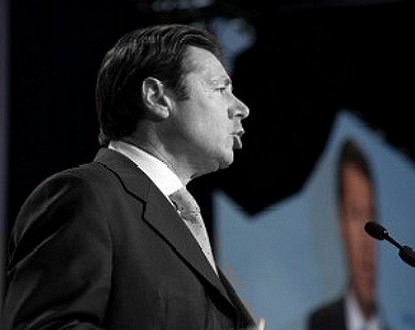The administrative account and information on active debt management, both validated by the Regional Chamber of Accounts, which is responsible for the accuracy of the figures, will be presented at the next Municipal Council meeting. However, Christian Estrosi wanted to make an early public presentation to put an end to the recurring rumors and speculation about a critical situation of municipal finances. “We inherited a catastrophic situation, and after 5 years in office, we have cleaned up public finances and controlled debt,” declares the Deputy Mayor of Nice.
The following figures provide a summary of the key points of the analysis and present some comparisons with cities of similar size. However, when it comes to finances, it also means economic policy, and here, Christian Estrosi took the opportunity for an excursus that resembles an assessment.
For the Mayor of Nice: “We’ve implemented a sustained investment policy. In 2012, 108 million euros were allocated for equipment expenditures, but since 2009, nearly 500 million euros have been invested. Our policy is to continue investing at the same level of debt repayment in order to stabilize it and not deprive the business world, particularly local businesses, of the lifeline of public investment.”
Similarly, the solidarity policy, which has also been progressively increased, represents 90 million euros, or 18% of operating expenses, compared to 13% on average for cities with over 100,000 inhabitants. Additionally, the City benefits 155,000 households with 2 million euros in tax breaks, the maximum authorized rate. With pride, Christian Estrosi says, “without any increase in taxation for the 5th consecutive year.”
This assertion requires a slight correction since, in 2009, the first year of budget responsibility after his election, a 15% increase was applied. This very clever increase, once implemented, allowed for a certain advantage in all successive years, and at the same time, presented a “flat” tax situation for the following years.
Regarding debt, the presented situation is largely under control: A stock in decrease (383 million euros in 2012 compared to 411 million euros in 2009) and increasing revenues. Slightly reduced management (wage bill -1.8 million euros, operating costs -2.4 million euros) can only have beneficial effects on the borrowing capacity, which decreased from 7 years in 2009 to 4.95 years in 2012.
Finally, a chapter has led to controversies from the Anticor Association, which asks the Mayor of Nice to take a more aggressive position towards banks that were behind and carried these financial products that turned out to be fraudulent: structured loans referred to as “toxic” (subscribed by the previous municipal team) in the number of 8, for a total amount of 168 million euros.
To date, 7 of the 8 loans have been renegotiated and thus secured. As for the last one, amounting to 19 million, the Mayor of Nice will propose at the next Municipal Council meeting on June 3 to take legal action against the bank Dexia to have it canceled with a potential gain estimated at 18 million.
To be even more precise on this sensitive matter, 66 French local authorities have succeeded in directly challenging the rates of so-called toxic loans like in Saint-Etienne and Seine Saint-Denis, and the case law seems favorable after noting that the loans in question violated “the prohibition for these communities to subscribe to speculative contracts.”
The presented figures show a well-controlled management and a 2012 debt situation that is not at all concerning. Should critics from all quarters be reminded that it is not the stock of a debt that matters, but above all the solvency of the debtor and their repayment capacity?
And, with a debt repayment capacity of nearly 5 years, Nice is in a largely comfortable situation.


